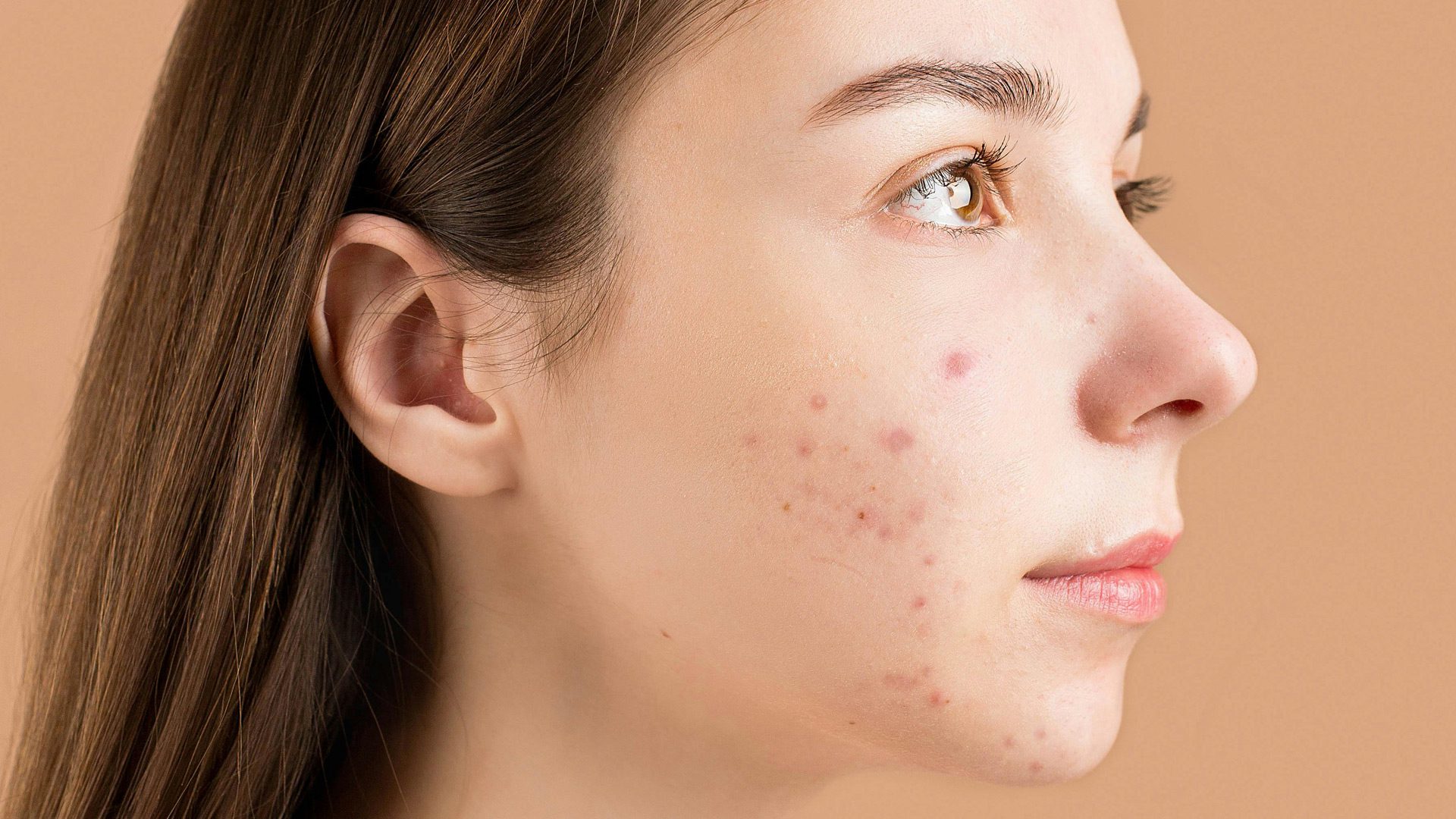Acne is one of the most common skin conditions, affecting people of all ages and skin types. Although it is often associated with adolescence, acne can persist or even develop in adulthood. In this post, we’ll explore what acne is, why it occurs, the various treatment options available, and practical tips to help manage and prevent outbreaks.
What Is Acne?
Acne is a chronic inflammatory condition that primarily affects the hair follicles and sebaceous (oil) glands. It occurs when pores become clogged with a mix of excess sebum (oil), dead skin cells, and bacteria, leading to the formation of various types of lesions. These lesions can include:
- Whiteheads: Closed clogged pores.
- Blackheads: Open clogged pores that oxidize and darken.
- Papules and Pustules: Red, inflamed bumps, with pustules containing pus.
- Nodules and Cysts: Deep, painful lesions that may lead to scarring if left untreated.
Understanding the underlying factors that contribute to acne is the first step toward effective management.
Common Causes and Triggers
Several factors can contribute to the development of acne:
- Hormonal Fluctuations: Hormones play a significant role in sebum production. Fluctuations during puberty, menstrual cycles, pregnancy, or conditions like polycystic ovary syndrome (PCOS) can exacerbate acne.
- Genetics: A family history of acne can increase your likelihood of developing the condition.
- Lifestyle Factors: Stress, lack of sleep, and certain dietary choices (such as high glycemic foods or dairy) may trigger or worsen acne.
- Skincare Products: Using products that are not labeled “non-comedogenic” (won’t clog pores) can lead to skin irritation and breakouts.
- Environmental Influences: Pollution and exposure to certain chemicals can irritate the skin and contribute to acne flare-ups.
Treatment Options
The treatment of acne varies based on the severity and type of lesions, and often requires a personalized approach guided by a dermatologist. Common treatment options include:
Topical Treatments
- Retinoids: Vitamin A derivatives that help unclog pores, reduce inflammation, and promote skin cell turnover.
- Benzoyl Peroxide: An antimicrobial agent that helps reduce bacteria and inflammation.
- Topical Antibiotics: Often prescribed in combination with other treatments to reduce bacterial growth and inflammation.
- Salicylic Acid: Helps exfoliate the skin and unclog pores by promoting the shedding of dead skin cells.
Oral Medications
- Antibiotics: For moderate to severe inflammatory acne, oral antibiotics can reduce bacteria and inflammation.
- Hormonal Treatments: Birth control pills or anti-androgens like spironolactone can be effective for women experiencing acne linked to hormonal fluctuations.
- Isotretinoin: A powerful medication for severe, cystic acne that has not responded to other treatments.
Emerging and Adjunctive Therapies - Light and Laser Therapies: These treatments aim to reduce bacterial load and inflammation, and they can be a beneficial addition to traditional treatments.
- Chemical Peels and Extractions: Performed by professionals, these procedures can help unclog pores and remove superficial lesions.
Skincare and Lifestyle Tips for Prevention
Managing acne isn’t only about medications—it also involves adopting a skincare routine and lifestyle that supports overall skin health:
- Gentle Cleansing: Use a mild, non-comedogenic cleanser twice daily. Over-cleansing or scrubbing harshly can irritate the skin and worsen acne.
- Moisturizing: Even oily skin needs hydration. Look for oil-free, non-comedogenic moisturizers to maintain a healthy skin barrier.
- Sun Protection: Sunscreen is essential. Many acne treatments can make the skin more sensitive to UV rays, so use a broad-spectrum sunscreen daily.
- Healthy Diet: Some studies suggest that a diet high in refined sugars and dairy products may exacerbate acne. Incorporate whole foods, fruits, and vegetables to support skin health.
- Stress Management: Techniques such as meditation, exercise, and proper sleep can help reduce stress-induced acne flare-ups.
- Avoid Picking or Squeezing: Picking at acne can lead to further inflammation and potential scarring.
When to Consult a Dermatologist
While over-the-counter treatments and lifestyle changes can help manage mild to moderate acne, it’s important to seek professional advice if you experience:
- Severe or persistent acne that doesn’t respond to initial treatments.
- Signs of scarring or significant skin discoloration.
- Emotional distress or a significant impact on your quality of life.
A dermatologist can offer tailored treatment plans, monitor progress, and adjust therapies as needed to ensure the best possible outcome.
Conclusion
Acne is a multifaceted condition that can affect more than just your skin—it can also impact your self-esteem and overall well-being. With a better understanding of its causes and a range of treatment options available, you can work towards achieving clearer, healthier skin. Remember, every individual’s skin is unique, so what works for one person might not work for another. Consulting with a dermatologist is the best way to find a personalized treatment plan that addresses your specific needs.
For more information on managing acne and personalized treatment advice, don’t hesitate to reach out to our clinic. Your journey to healthier skin starts with the right care and professional guidance.
Empower yourself with knowledge, and take the first step towards clearer, more confident skin today!

